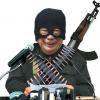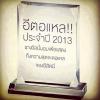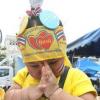
http://www.bangkokpo...terview/page-4/
The good, the bad and the BBC's ugly Abhisit interview
A good interview raises more questions than it answers, while a bad one raises more questions about the interviewer than the interview. A mix of both was in play last week when former prime minister Abhisit Vejjajiva was interviewed by BBC news presenter Mishal Husain about murder charges recently levelled against him.
Thailand's Department of Special Investigations chief Tarit Pengdith rocked the political world by charging Mr Abhisit with a murder for issuing orders that "caused the deaths of many people" in during the populist disturbances in Bangkok in April and May 2010.
Such unprecedented charges have broad implications, though the questionable legal underpinning of the case may see it thrown out of court.
Certainly there is something wrong about using an army to put down a civil disturbance; the armed forces possess too much firepower and are too blunt an instrument for crowd dispersal. It's usually a police job, if they are willing to do it.
The cool efficiency with which the police recently dispersed the crowd assembled by retired General Boonlert Kaewprasit on Nov 24 with tear gas and draconian traffic control demonstrates that police do in fact possess the technical skill to contain a peaceful crowd peacefully if they have the political will to do so.
But this wasn't the case in 2010 when Mr Abhisit lacked the active support of the police, which eventually thrust the thankless job of riot control into the hands of the army. This task was made infinitely more difficult by the knowledge that the generally peaceful red-shirt mob was laced with provocateurs and armed elements.
In any case, if the buck stops at the top and former PM Abhisit is in some general sense responsible for the 90 or so violent deaths on both sides of the barricades that took place on his watch during the tragic pitched battles of April and May 2010, then what of his predecessor? Thaksin Shinawatra presided over a bloody war against drugs with provincial quotas that took an estimated 2,500 lives.
What about the shocking Tak Bai massacre and the storming of the Krue Seh mosque which also took place on his watch? Has Thaksin been served his papers yet?
For the BBC to focus on the sensational side of the murder charges, complete with disturbing archival footage, rather than to examine the complex and contradictory nuances of the actual tragedy as it spiralled out of control, is to drink the red Kool-Aid and thereby contribute to the vilification of a Thai politician who has consistently and courageously opposed Thaksin's volatile populism.
Having the opportunity to interview a famous person accused of murder is, in crude journalistic parlance, a good "get". It's fodder for tabloids and TV talk shows alike, especially if the crime is a crime of passion and involves an actual "hands-on" murder committed out of malice or revenge.
But a novel and untested case that seeks to apply the murder charge to a leader due to the unintended and inadvertent loss of a life that took place during a crackdown against volatile civil strife is quite another matter.
Both are newsworthy topics, and both involve the profound tragedy of their respective victims, but otherwise they are worlds apart.
Moreover, any serious examination of this case raises huge questions that go way beyond the sorry fate of Mr Abhisit.
A complex course of action is set into motion by any leader's policy directives _ signed, spoken or implied _ and yet, even with the best of intentions, tragedy is a possible outcome. Policy may be poorly thought out, inappropriate or plain wrong-headed, but does that make it murder?
The thorny question of leadership and culpability opens so large a can of worms that it seems unfair single out one or two Thai prime ministers. What if US presidents were held to a similar standard? Drone attacks ordered by Mr Obama have "caused the deaths of many people" including non-combatants and children. And if that makes him guilty according to Mr Tarit's criteria, then what of the criminal liability of George W Bush? Is it not a slam-dunk case?
As a matter of consistency, former British PM Tony Blair should also be in the dock, or prison, for aiding and abetting the unjustified war against Iraq that led to the death of millions.
Maybe the BBC just had a bad air day, putting a script-bound news presenter on a topic beyond her depth.
If, however, the BBC intends to lend its credibility to a rude piece of work that combines the "gotcha" mentality of Fleet Street with the uncritical embrace of a thorny legal precedent concerning leader culpability, then maybe the BBC should apply its exacting standards closer to home.
How about a probing interview with Mark Thompson, former director-general of the BBC, and as of November, the new president and chief officer of the New York Times, for crimes and misdemeanours that took place on his watch?
Serious questions have been raised in the pages of the Times itself about the dubious ethics of this appointment. Why, then, has NYT chairman of the board Arthur Sulzburger doubled-down his support for Mr Thompson while the latter tepidly answers allegations with silence and memory lapses worthy of a Watergate suspect?
The trans-Atlantic solidarity of a posh BBC Brahmin and a brash hereditary press baron at the Grey Lady has a whiff of elite impunity about it; a mutual admiration society of two ambitious men who enjoy uncommon privilege, impunity, power and influence.
Given the ardour with which BBC journalist Husain went after Mr Abhisit _ battering him with rote questions, shouting down his soft-spoken voice, playing up the lurid aspects of the case with a kind of journalistic impunity _ one can only conclude that the BBC can dish it out better than they can take it.
Should Ms Husain ever turn her strident populist gaze to her own organisation, it will provide for some uncomfortable viewing as she forces the suits to kowtow to a crowd-pleasing script in the "gotcha" game.
Edited by marrykate, 16 December 2012 - 10:10.





























